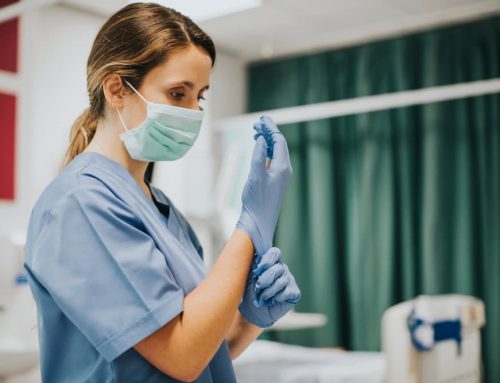Medical laboratory professionals remain in high demand as healthcare services continue to expand in every corner of the country. Earning a medical laboratory science degree prepares graduates to succeed in this challenging and rewarding profession.
Typically, medical laboratory professionals fall into two categories: professionals holding a two-year Medical Laboratory Technical (MLT) degree and those with a four-year Medical Laboratory Scientist (MLS) degree.
An MLS tends to command a higher clinical laboratory technician salary and a better chance at job promotion. As such, enrolling in an MLT to MLS online program is a smart choice for those with an associate degree ready to earn an advanced medical laboratory science degree.
The Difference Between MLT and MLS
Earning an MLT allows people to enter the medical laboratory profession. Earning an MLS prepares graduates for a higher level of responsibility in the field, including overseeing technicians’ work.
Job Duties of an MLT
After earning an MLT, graduates understand the foundations of clinical lab work. According to the U.S. Bureau of Labor Statistics (BLS), they typically take on job duties that include the following.
- Operating laboratory equipment, such as microscopes and cell counters
- Using laboratory equipment to analyze body fluids, including blood, urine, and tissue samples
- Recording normal or abnormal findings from analysis in a patient’s medical record
- Studying blood samples for use in transfusions by identifying the number of cells, the cell morphology or the blood group, blood type, and compatibility with other blood types
In general, an MLT performs automated, routine tests. They work under the supervision of an MLS or laboratory manager.
Job Duties of an MLS
An MLS performs more complicated tests and laboratory procedures than an MLT. They may prepare specimens and perform detailed manual tests. They may also work as specialists in disciplines that include:
- Blood bank technologist: collecting and classifying blood by type, as well as preparing blood transfusions.
- Clinical chemistry technologist: analyzing chemical and hormonal contents in body fluids.
- Cytotechnologist: examining cells for abnormalities that may signal cancerous growth.
- Immunology technologist: investigating the immune system’s response to foreign bodies.
- Microbiology technologist: examining bacteria and other microorganisms.
- Molecular biology technologist: performing complex protein and nucleic acid tests
Clinical Medical Laboratory Technician Salary
The Bureau of Labor Statistics (BLS) tracks salaries for both medical lab technicians (MLTs) and medical lab technologists (MLSs) together, reporting a median annual salary of $60,780 nationwide.
VelvetJobs reports that the average annual salary for a medical laboratory scientist (MLS) in the United States is about $72,000, with typical salaries ranging from $57,000 to $94,600. Pay can vary based on experience, location, and other factors such as industry demand and certifications. This makes the MLS role more lucrative than that of medical lab technicians, reflecting the higher qualifications required for the position.
Why Earn a Medical Laboratory Science Degree?
Earning a degree in medical laboratory science prepares graduates for a profession that will continue growing for the foreseeable future. The BLS reports that the number of jobs for medical laboratory professionals will increase 5%.
The data highlights why professionals with an MLT who are ready to advance their careers should consider earning an MLS. Graduates from the MLS program handle more challenging work in the lab and as managers.
The MLT to MLS online program from Northern Michigan University is designed with busy medical lab technicians in mind. With 100 percent of the didactic course online, the program offers the flexibility required for working professionals. Students can complete the program at their own pace. The program is accredited by the National Accreditation Agency for Clinical Laboratory Sciences. (NAACLS).
Northern also offers students the opportunity to take workplace leadership courses as part of their minor. These courses prepare graduates for clinical leadership roles. It’s all part of the university’s School of Clinical Sciences mission to prepare graduates to attain certification, employment, and professional development.
As healthcare expands, the need grows for expertise in various healthcare occupations, including skilled medical laboratory professionals. By entering an MLT to MLS program, students take the next step toward earning the best jobs in the field.







